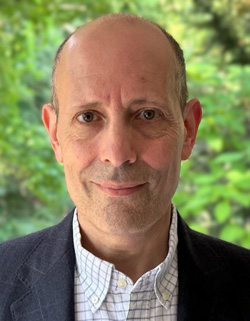Patients in Pain: Now What?
Dr. Saul Rosenthal
1-day workshop
Date: Saturday, March 29, 2025
Language: English
Workshop Title
Patients in Pain: Now What?
Workshop Description
Chronic pain is among the most common of health complaints, and among the most complex to manage. This workshop is focused on chronic pain and its management from an applied psychophysiological perspective. Individuals can develop chronic pain in any part of the body, and it may emerge from injury, overuse, normal aging, a variety of health conditions, or from unknown origins. In addition to the billions of dollars in health care costs and lost productivity, chronic pain has significant psychosocial costs. School, work, families, relationships, and even the sense of self are often disrupted. Unfortunately, typical medical treatments are often minimally effective, in part because they focus on individual symptom relief, rather than on the whole health of the individual. Applied psychophysiology, on the other hand, is an inherently integrative approach, allowing for a multidimensional understanding of chronic pain and how to manage it. This workshop emphasizes person-centered care, including acceptance of a biopsychosocial model of pain, developing realistic goals that are meaningful to the individual, and interventions that encourage proactive self-management. In particular, the workshop emphasizes biofeedback as an effective, evidence-based intervention for enhancing physiology and improving pain management. Through presentation, collaboration, and illustrative exercises, participants will learn the basics of understanding and managing chronic pain, with the ultimate goal of enhancing their clients’ quality of life.
Learning Objectives
1) Describe a functional model of chronic pain
2) Understand the impact of chronic pain on an individual’s life
3) Recognize biopsychosocial aspects of chronic pain
4) Select appropriate biofeedback interventions based on condition and patient response
- About Saul Rosenthal
Saul Rosenthal, PhD is a developmental and clinical psychologist in the Boston area, specializing in complex and chronic health conditions. His expertise lies in integrative care, primarily drawing from cognitive behavioral therapy, mindfulness, and applied psychophysiology. He has worked in a variety of medical and community health settings, including serving as Training Director and Biofeedback Coordinator of Behavioral Medicine at the Cambridge Health Alliance. He also supervised and oversaw training for interns, postdocs, and residents, and ran the biofeedback program in the Primary Care Behavioral Health service at the Edith Nourse Rogers Veterans Medical Center.
Dr. Rosenthal is board certified in biofeedback, HRV biofeedback, neurofeedback, and qEEG. He served on the Board of Directors for the Association for Applied Psychophysiology and Biofeedback (AAPB) and currently serves on the Board of the Northeast Region Biofeedback Society (NRBS). He is an editor and contributor for the Fourth Edition of Evidence-Based Practice in Biofeedback and Neurofeedback, authoring the chapters on chronic pain and chemobrain. He was the 2024 recipient of AAPB’s Sheila Adler Award for Distinguished Service. Dr. Rosenthal presents to a wide variety of audiences on topics related to chronic health conditions, biofeedback, and applied psychophysiology, and is involved in training, supervision, and biofeedback mentoring. Dr. Rosenthal is also the host of the NRBS podcast, Healthy Brain Happy Body.

